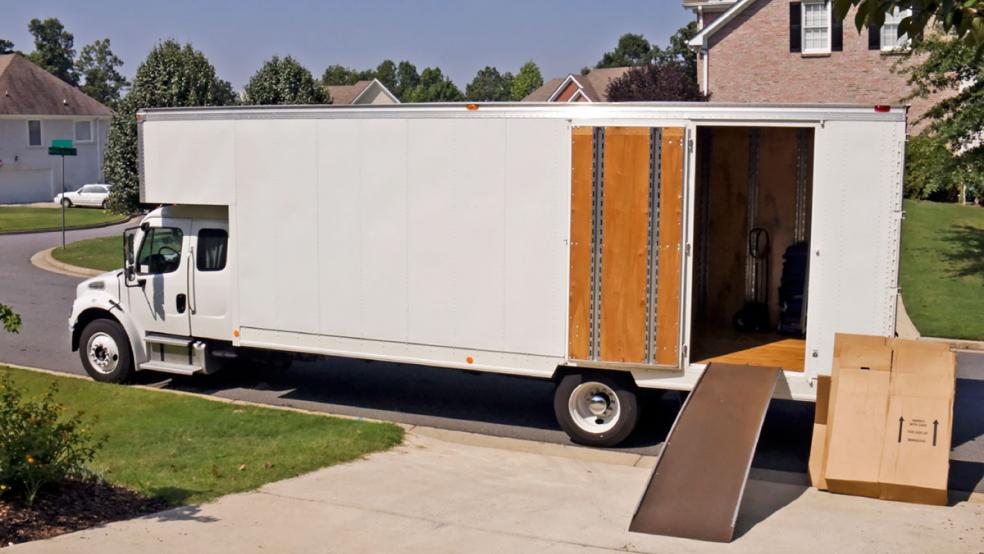While the nation’s job market continues to slowly improve, millions of Americans still find themselves unemployed, underemployed, or stuck in an unhappy job situation.
The jobs recovery, of course, has not been even throughout the country. More than 200 cities have unemployment rates below the national average of 6.5 percent, and about 150 have unemployment rates below it.
For folks living in high unemployment areas, the answer to the job hunt may be relocating, and even happily employed workers may be asked by their company to make relocate. After decreasing their relocation budgets throughout the recession, companies last year increased the number of people they asked to move. Meanwhile the improving housing market has made it easier for individuals to sell their homes and relocate for work.
Of course, making such a move is not a decision that can be made lightly. Moving to a new city and transitioning into a new job can be two of the most stressful life events, and doing both at the same time can be especially challenging.
According to MyMove.com’s December 2013 Consumer Insights Study, 18 percent of those moving to a new home cited a new job/transfer as one of the primary reasons for relocating. Employees transferring to another city for the same company have many similar issues as new employees, but transfers have the advantage of already being familiar with their organization’s philosophy and culture, though some experts point out that a company’s culture can vary from city to city.
Related: How the Housing Comeback Can Help Workers
Those in the MyMove survey who cited a new job or transfer as a reason for moving said they had positive feelings about the move; 80 percent had positive feelings about the move. Although it’s impossible to predict how moving to a new location for a job will turn out, doing as much advanced planning as possible will increase the odds of a successful transition. That usually requires a great deal of self-assessment, research, and family discussions. The usual job concerns like opportunities for advancement and a company’s future prospects are compounded with finding a new home in the right neighborhood, and how much the company will kick in (if anything) for relocation costs.
Weigh your options.
Once you’ve scored a job offer take your time in making the decision. Most hiring managers will allow a little more time for potential candidates to evaluate an offer if the decision requires an out-of-town move.
Perhaps the biggest personal factor to consider when moving is the potential happiness of a spouse or partner and children. “If a spouse or child cannot feel comfortable or connected, it can be the make-or-break of when a move doesn’t work,” says Hilary Pearl of Pearl Associates, an executive consulting firm based in Old Greenwich, Conn. “We don’t pay as much attention to a spouse and family as we should.”
You’ll also have to run the numbers, taking into account the cost of the move, as well as living expenses once you’re settled into the new place. Use a cost-of-living calculator to get a rough estimate, and get a sense with whether you’ll be comfortable with the lifestyle you can afford in the new place.
Consider the costs.
The relocation costs paid by employers have declined since 2009 according to the Society of Human Resource Managers (SHRM) 2013 benefits research report. For example, location visit assistance, (paying for house-hunting trips) has fallen from 36 percent of companies in 2009, to 22 percent in 2013.
In addition to being stingier with expenses, companies are generally doing a poorer job of preparing employees for the life changes they will encounter in a move, says Walter Reichman, the vice president OrgVitality, a management consulting firm in New York. So besides bearing a larger cost burden, you’ll also be more on your own when it comes to adjusting to a new gig and a new location.
Do Your homework.
Due diligence includes researching a new city and its neighborhoods, and at least one visit to get a sense of whether you feel you and your family will fit into a community.
Start by contacting a realtor who specializes in relocation to help you being the process. Besides the professionals, you’ll also want to reach out to “real people” who can tell you what it’s like to live an area. People often underestimate how long it takes to find a new support network moving to a new area, so use social media to see if your existing friends and family might be able to connect you with some like-minded locals.
Related: 11 Shocking Facts About the North Dakota Oil Boom
Have a Plan B.
Even if you’ve done all the upfront legwork, it’s important to have a backup plan in place. “You want to look at an exit strategy, what happens if things don’t work out well,” Reichman says. “Is the kind of work you do in demand? If you lose the job, are there a dozen other places you can work, or is your job tied to a single organization?”
Experts also recommend renting for the first year or so in a new place. That way, if you find that you’re in the wrong neighborhood or don’t love home or apartment you’ve chosen, it’s much easier to move than if you had purchased a property.
Top Reads from The Fiscal Times:





